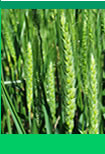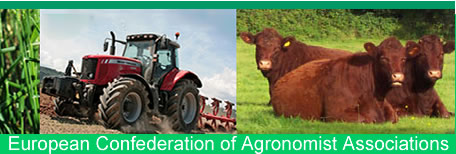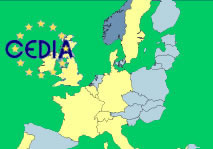


|
Examples of other Cedia important activities ATTEA: Agro-Technology Transfer by European Agronomists. At the beginning of the nineties a period of high unemployment took place. It also hit agronomists. In some Southern European countries, more then 20% of our colleagues were without a job. In order to remedy to this difficult situation, CEDIA developed a training program in collaboration with a financial package from the European Commission. More then 170.000 Euros of funding was awarded. The objective of ATTEA was to give the opportunity to young graduates leaving college the possibility of visiting another European country for a period of six months to one year, in order to gain experience in a temporary position, and at the same time, to transfer the technology of their country and /or faculty to the body where they were employed. The remuneration for this rendered service and work was paid partly by the employer and partly by the EU subsidy. Our colleagues of Wageningen organised the daily management of the programme. ATTEA fitted very well to the European philosophy, i.e.:
Although on it’s launching the project was received with a lot of enthusiasm, ATTEA did not achieve the success expected. The reason was simple: the unemployment crisis for the agronomists did not last very long. Within a few years the situation switched from a surplus of job seekers to a deficit of graduates. Indeed in several countries, the vacancies for jobs opportunities far exceed the number of available candidates. Nevertheless, ATTEA was absolutely a worthwhile project. With Brussels as the capital of Europe and Agriculture being the principal common policy, it was clear that a big number of people who were involved or interested in agriculture resided in Belgium. CEDIA gained from this presence by organising several “Green lunches”. These meetings incorporated short conferences organised with a light lunch in order to inform Cedia members and other interested persons on “hot” topics relating to agriculture, agricultural policy etc. Speakers included Commissioners, Senior Functionaries, Member States Permanent representatives and Member’s of Parliament. CAP reform, the Animal Welfare, the Consequences for the European agriculture of the introduction of the Euro, were among the subjects, which were addressed. Due to changes in organisation both in the European Institutions and to the Committee of European Agronomists/Cedia, the organisation of these meetings was unfortunately discontinued. However a new and more convenient approach, which was more suited to present circumstances of Cedia, where most delegates are now coming from outside of Belgium, was adopted in recent years. Annual seminars have been organised and held in the Institute for Ireland in Europe in Leuven. This is an old monetary which has been adopted to facilitate such events to include accommodation and meeting facilities. The Director and staff of the Institute play a key role in organising the events. High profile speakers are invited to attend from the European Institutions and other Brussels based organisations as required. Not alone have major topic of concern to members and member countries been discussed, it has also provided members with excellent networking opportunities.
The exchange of information between member associations is a primordial task for CEDIA; to know how our colleagues live and work in other countries is a sure way of enriching our associations and ourselves. Cedia over the years has carried out numerous studies. These were aimed at a better understanding of the structures and services provided by member associations, Curriculum’s, studies and training of graduates in different member countries; the professional occupations of members as well as a comparison of remuneration and career prospects of graduates and many more other items. However in many cases the information supplied did not allow for a direct comparison as between the situations as they exist among member countries. It was clear that not all the data was available, or in the same format in the different countries; nevertheless the collected information was a precious source of information for all of us. The current board have recently nominated a working group to carry out a new study of member associations and to provide a new information update on data which is now outdated. Representation is regarded as an important function of Cedia. The President and the general secretary, accompanied by board members as appropriate, participate in an ongoing programme of engagements. These vary from meetings with members and officials of European Union institutions to members of National Governments, International organisations, Cedia member Country Associations etc. The interests of Cedia are promoted and views expressed to include presentations to relevant international fora. For almost 20
years CEDIA has being circulating a Newsletter.
In the beginning, this quarterly document was mailed by post; nowadays
we only use electronic mail as well as posting it on the Internet.
In recent years its publication was not as regular as we would have
wished however the present board have agreed that it should again
be published quarterly. In recent years this website was developed.
This site is linked to the websites of all member
associations, providing an integrated and coordinated view of
Cedia and its member associations. |